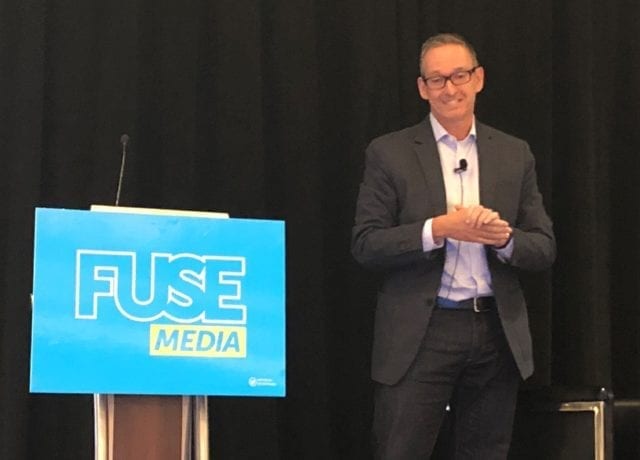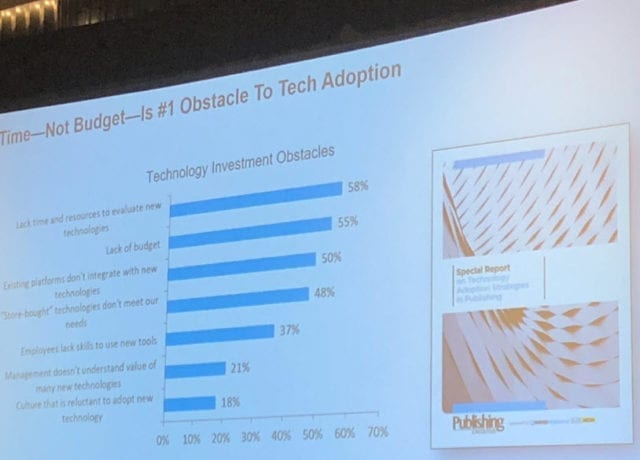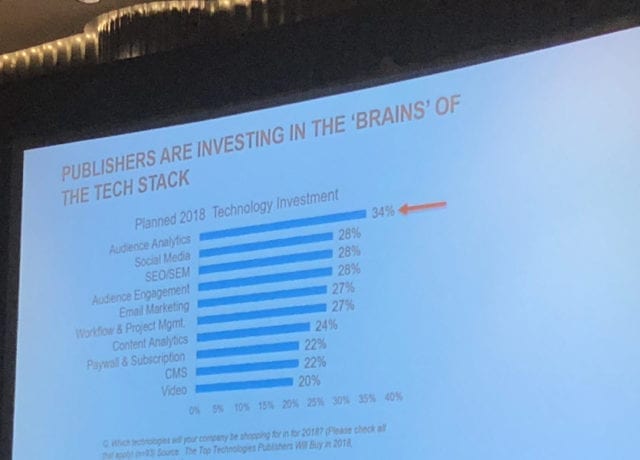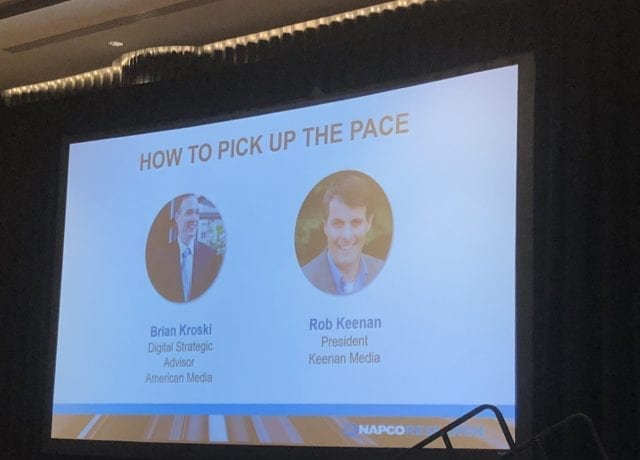The Fuse Media: The Convergence of Technology & Media conference is the only hosted buyer event that brings together top technology executives in media. The seminar brings together some of the brightest minds in media and technology to discuss how these media companies can adopt the right tech quicker and more efficiently.
The 2018 Fuse Media conference was held in Philadelphia, PA from Monday, October 1st to Wednesday, October 3rd. This year, attendees benefited from:
- Expert analysis of next gen publishing technology and trends
- Case studies that probed leading tech tools and solutions in a no-holds-barred setting
- Intel and high-level meetings with leading vendors
- Connections with like-minded industry technologists that are elevating the media business
Attendees stayed in the heart of Center City – at the Loews Philadelphia Hotel.

3 Takeaways from the 2018 Fuse Media conference:

1. Data and technology is changing what it means to be a media company
Matthew Yorke, Chief Digital Officer at Northstar Travel Media, LLC and conference co-chair, made an opening keynote address that grabbed the audience and set the tone for this entire event. His presentation revealed how the leading B2B media firm, SourceMedia, uses technology adoption to drive business objectives like launching data-based products and speeding time to market.
Yorke also stressed the importance of “trustworthy information.” Since July 2017 when 30 to 50 million Facebook accounts were hacked as well as the recent passing of the GDPR legislation, privacy has been at the forefront of marketers’ minds. Media companies stand at a turning point, swimming in the realities of brand safety and ad fraud.
It’s the perfect time for media companies to reinvent themselves, explained Yorke,; central to that reinvention is valuable first-party data, a first-in-class technology stack, and a monetization strategy that aligns with both.

2. Artificial Intelligence (AI) can be transformative … if you’re willing to fail
Kartik Hosanagar, University of Pennsylvania technology and digital business professor at The Wharton School, spoke. He talked about the history and opportunities surrounding Artificial Intelligence (AI). Here is Hosanagar’s list of five practical steps to start in machine learning:
- Set up an AI brain trust of 8 to 12 people in the organization (insiders and outsiders)
- Brain trust identifies a set of activities within your organization that you can automate using machine learning (ML)/Artificial Intelligence (AI)
- Classify them into short-term and long-term initiatives
- Construct a two-year ML portfolio, consisting of four to five short-term projects and at least one long-term project
- Figure out how the AI team will fit into the organizational chart: build or buy versus centralized or decentralized
In Hosanagar’s eyes, media companies should continue experimenting with AI, even if they fail early on, and to consider underlying business adjustments required to take advantage of AI, such as organizational learning and consensus building.
3. Inefficiency is a real problem. Time – not budget – is the #1 obstacle to tech adoption

Brian Kroski, American Media’s Digital Strategic Advisor, and Rob Keenan, the President of Keenan Media, explored objectives and obstacles associated with tech adoption. For instance, media companies often lack the time and resources to evaluate new technologies when making technology investments.
Kroski and Kennan were also the first ones to discuss Publishing Executive’s newest research report entitled “Tactics for Creating a More Agile Digital Tech Buying Strategy.” In this presentation, they dove into the tactics media companies are employing to streamline their technology evaluation and adoption efforts.
To overcome that lack of time and resources, Kroski and Kennan offer media companies the following solutions: invest in the brains of the tech stack – audience analytics, social media, and search engine optimization (SEO).

The overall 2018 FUSE Media Summit confirmed technology is here to stay and here to enact change in the media industry. As publishers, we need to find the right technology and continue experimenting with others like AI. If we want to survive and thrive, it’s vital to adopt technology sooner rather than later. It is also important to allocate both time and financial resources to ensure success with tech adoption and implementation.




